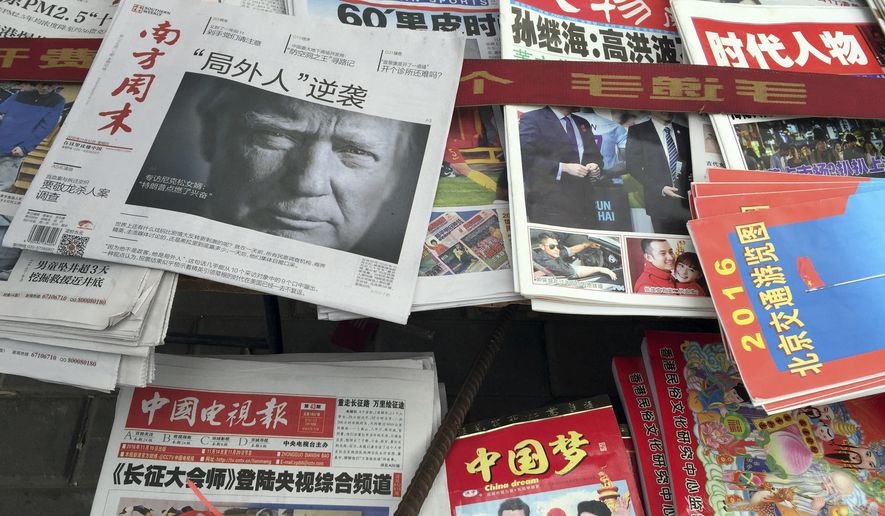The disruptions of the news-gathering business haven’t been felt just in coverage of Washington and the states. Many Americans and U.S. policymakers once got their international news from the bureaus, correspondents and stringer networks run by American and Western news outlets. Markos Kounalakis, a visiting fellow at Stanford’s Hoover Institution and a senior fellow at the Budapest-based Center for Media, Data and Society at Central European University, has written “Spin Wars and Spy Games: Global Media and Intelligence Gathering,” a study of the evolution of the global news media and the heavy investment in state media by countries such as Russia and China as Western media pull back. Washington Times’ staffer Connor Foarde recently interviewed the author about his findings:
Question: What inspired you to write “Spin Wars and Spy Games?”
Answer: I noticed that the business model in both American and Western journalism was collapsing and that we were having fewer and fewer foreign correspondents around the world. And I wondered what that would mean both for the state of our democracy but also for foreign policymaking, because I knew that policymakers and analysts rely on foreign correspondents and bureaus to provide their work on a regular basis. They use that to get a more holistic and complete picture before they make decisions. That was the first reason I started researching this. I was curious about what happens when we don’t have as many American journalists out in the field.
Q: What surprised you most during your research for the book?
A: As I was researching, I actually found out that there were more foreign correspondents in the world rather than fewer. The difference, of course, was that they weren’t our foreign correspondents. They were mainly from China and also from Russia. And so my question arose: If on the one hand we’re losing intelligence and diplomatic capacities and at the same time the Chinese and the Russians are gaining capacities, then of course there must be some effect on foreign affairs and policy.
Q: What effect does the decline of foreign bureaus and global news networks have in the United States?
A: Without these foreign bureaus, it does a couple of things in the United States. One is that it means our citizenry, whom we depend on to be informed on foreign policy as we make our political decisions and choose our leaders, becomes less informed. While there may exist alternative information and data online and elsewhere, the type of reporting that was tailored to us has disappeared. As these bureaus are being supplanted by non-Western organizations with state-driven agendas, the information that we’re getting in the United States is becoming agenda-driven.
Q: Russian and Chinese outlets are examined thoroughly in the book. Many of these outlets operate at the will of the state, making free press nonexistent in these countries. Do you think a free press will ever exist in places like Russia or China?
A: Not anytime soon. Certainly not while [Russian President Vladimir] Putin is in power. Not while [Chinese President] Xi Jinping is in power. Xi Jinping, in particular, is very familiar with what they refer to in China as “united front” work, which means that journalism is meant to support the party and state. Putin is notorious for turning a blind eye to the journalists who are oftentimes embattled, beleaguered and sometimes even murdered. Some would even say he is responsible for their murder. I have no evidence of that, but certainly it is something that is heavily rumored and well within the realm of possibilities. So in that environment, the answer is no. Free press will not exist anytime soon and certainly not while they’re in power.
Q: What message do you want to deliver to your readers?
A: That Western journalists are neither spies nor diplomats, but they often perform those functions. Non-Western journalists are often filling those roles of spies and diplomats, and we have to be aware of that practice going into the 21st century in this competitive, international world.




Please read our comment policy before commenting.